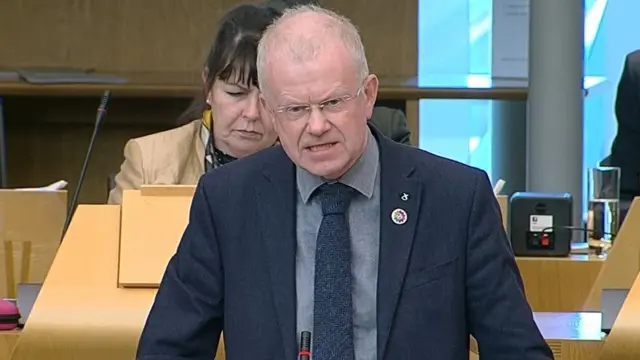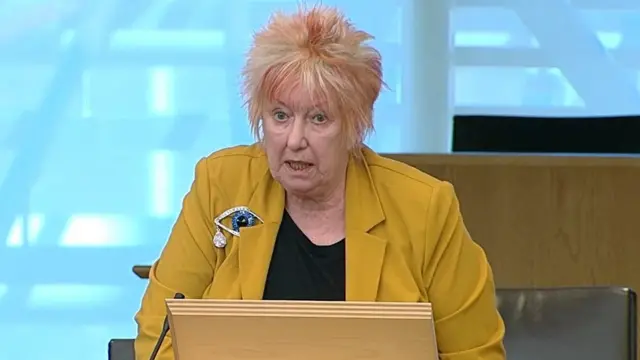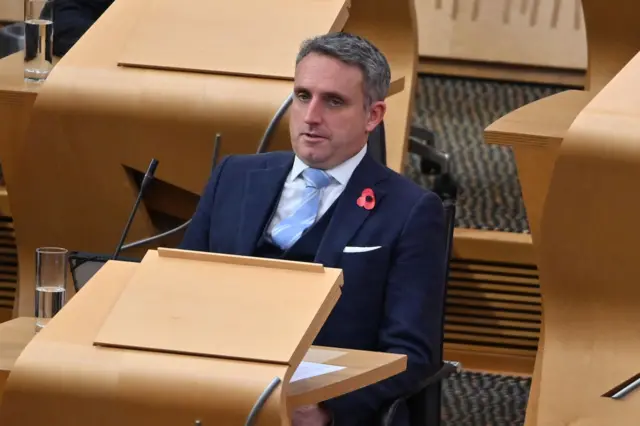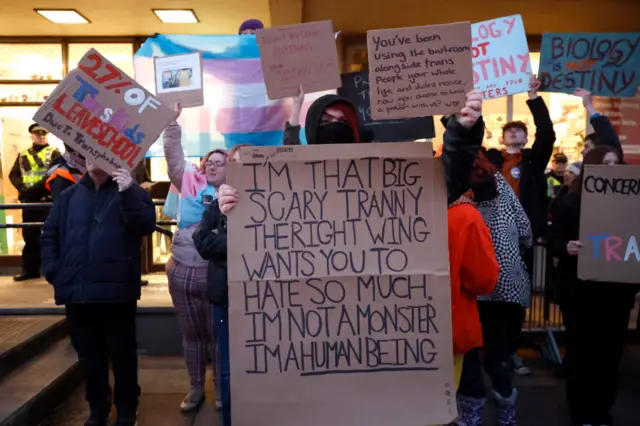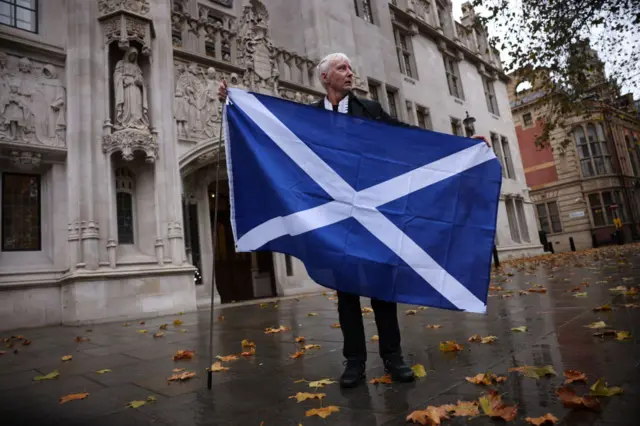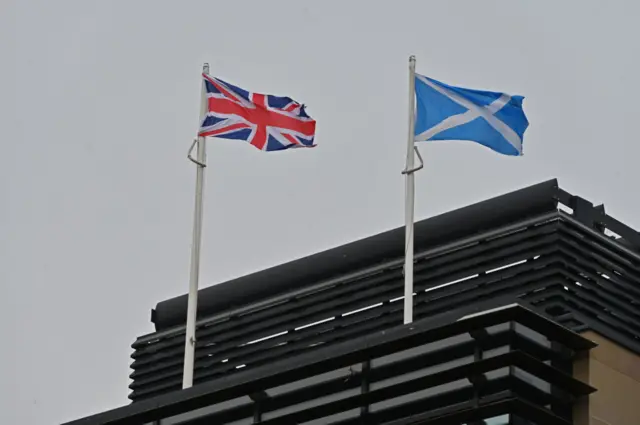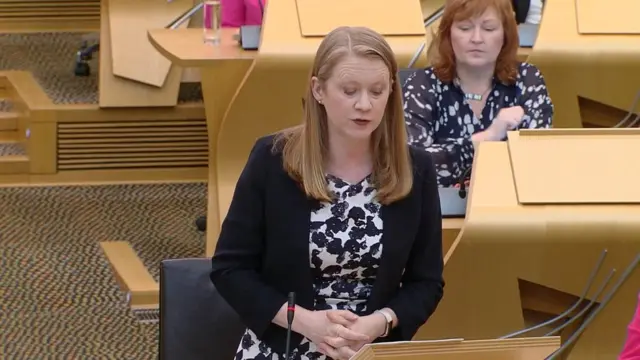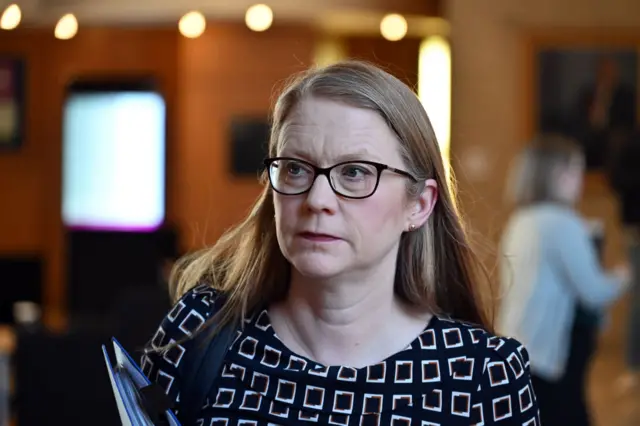Gender reform legal action statement: Key pointspublished at 16:22 BST 19 April 2023
'No option' but to take gender reform legal action - minister
If you're just joining us or need a recap here are the key points from the statement on the Scottish government's gender reform legal action:
- The Scottish government has set out the thinking behind its legal challenge to Westminster's block on its controversial gender identity plans
- Social Justice Secretary Minister Shirley-Anne Sommerville told Holyrood the move was "not taken lightly"
- MSPs voted in December last year to pass the Gender Recognition Reform Bill by 86 votes to 39
- But the UK government decided to block the reforms using a Section 35 order for the first time
- Sommerville said the government was acting in defence of Scottish democracy
- She said the Scottish government's petition for judicial review of the veto on the GRR Bill should be published tomorrow
- Scottish Conservative MSP Donald Cameron accused ministers of engaging in distraction from the "serious crisis that is currently engulfing the SNP"
- Labour MSP Paul O'Kane said he disagreed with the approach by Westminster, but said this escalating the row was not constructive
That's all from the live team today, thank you for joining us. The editors were Calum Watson and Deirdre Kelly. The writers were Paul O'Hare and Craig Hutchison.

